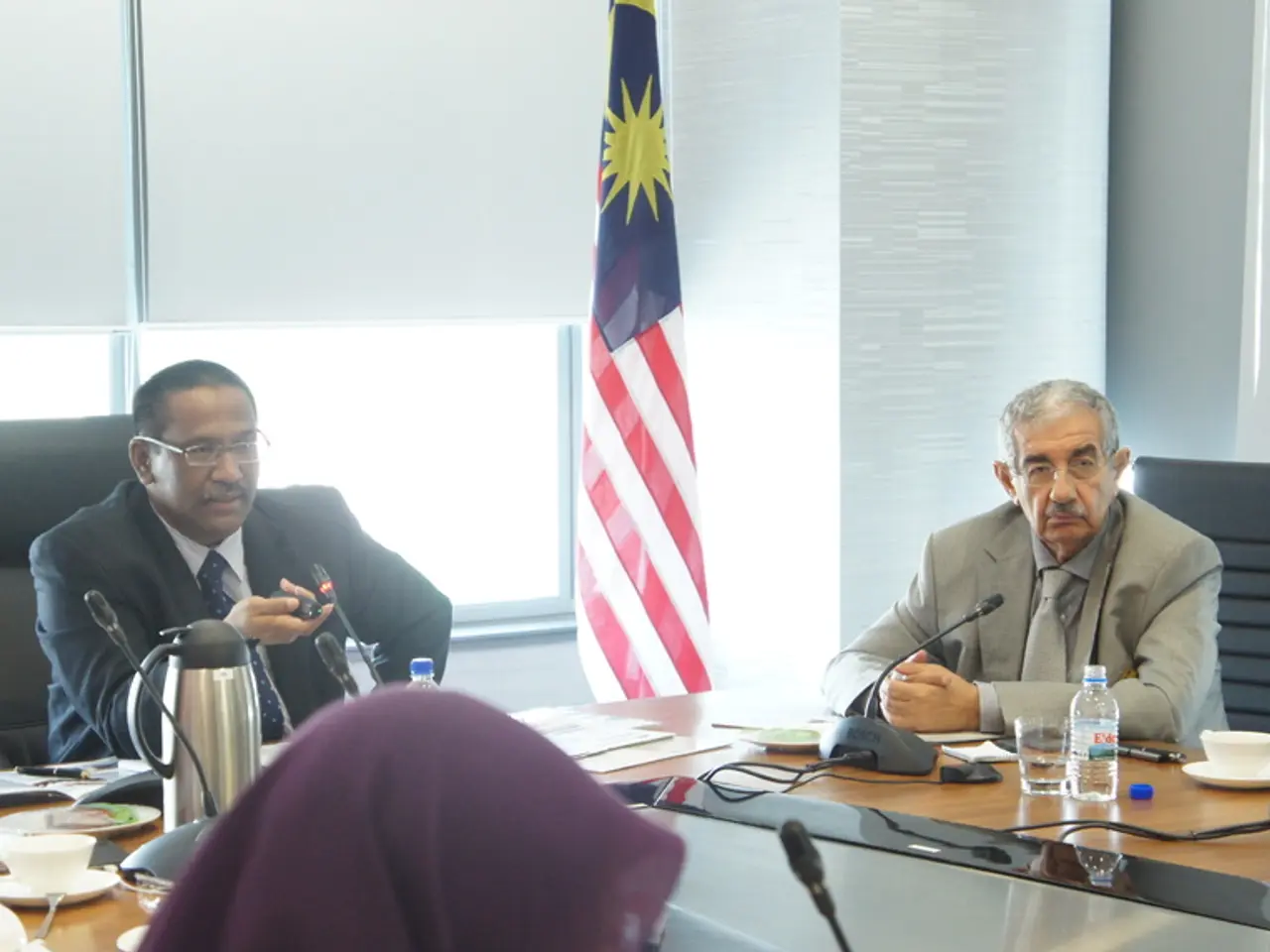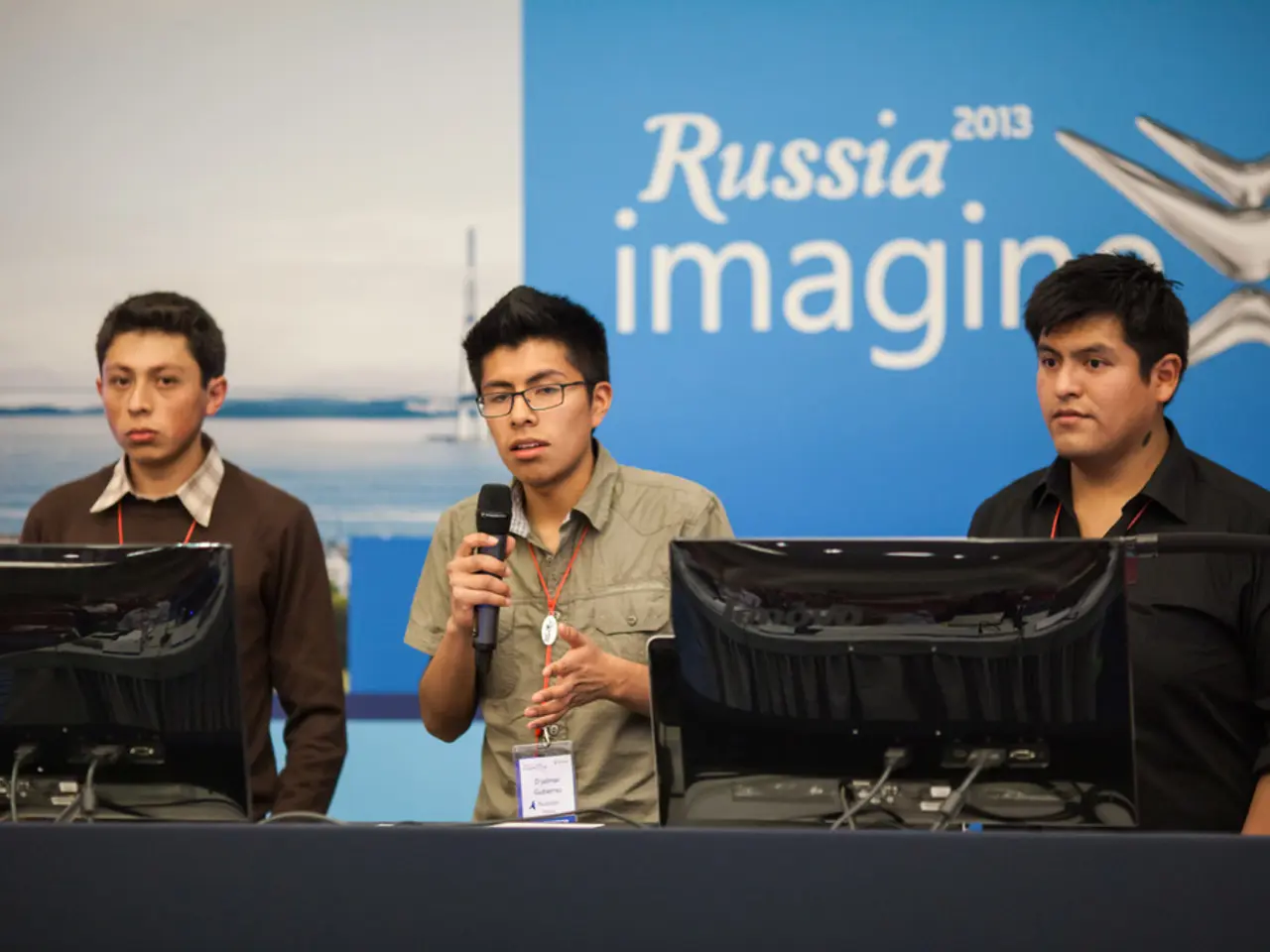Collaboration between Lechner and Merz and Klingbeil wins Lechner's accolades - Lechner extols the collaborative effort between Merz and Klingbeil
Germany's Coalition Partners Navigate Tensions and Cooperation
The political relationship between Germany's center-right CDU and center-left SPD parties, both in Berlin and at the federal level, is characterized by a blend of significant tensions and ongoing cooperation.
Tensions Galore
The coalition has faced numerous challenges, with key points of contention including judicial appointments, energy policy, and fiscal issues. In July 2025, a CDU/CSU bloc withdrawal of support for an SPD-nominated Constitutional Court judge candidate due to plagiarism allegations and controversial positions threatened coalition unity and led to emergency SPD meetings, highlighting deep-seated mistrust and political friction within the coalition.
The CDU's support for nuclear energy and the SPD's opposition to its use represents another fundamental policy divide. Meanwhile, fiscal and budgetary issues in Berlin’s state government have strained relations, with the CDU losing ground while the SPD polls weaker.
United Front on Critical Issues
Despite these tensions, the CDU and SPD have managed to maintain coalition governance, agreeing on security and crisis management reforms. They plan to establish a National Security Council within the Federal Chancellery, chaired by the Chancellor and including ministers from both parties, to provide integrated strategic coordination across domestic and international security.
A Marriage of Convenience
Friedrich Merz, the CDU leader and Chancellor of Germany, and Lars Klingbeil, the SPD chairman, are working together professionally and trustfully in the federal government. However, Sebastian Lechner, the CDU parliamentary group leader in Lower Saxony, described their partnership as a "marriage of convenience" for Germany.
Lechner also expressed that time is needed for the partnership between Merz and Klingbeil to continue, as the coalition needs time to stabilize after a challenging election campaign and negotiations. He highlighted initial political successes in border controls, economic promotion, and foreign policy.
Internal Strife Within SPD
Lechner also pointed out deep internal conflicts within the SPD, between a pragmatic governing wing and a left wing. He criticized the internal state of the coalition partner, stating they are heavily depleted.
Looking Ahead
Despite the current tensions, Lechner remains optimistic, believing common solutions will be found on a factual level. He emphasized that the new government requires time to gain momentum and that the current tensions between Union and SPD in Berlin have not affected the stability of the federal government.
[1] Source [2] Source [3] Source [4] Source [5] Source
- In response to the ongoing tensions within Germany's coalition government, a policy-and-legislation focus has been necessary in order to navigate through issues such as energy policy, fiscal matters, and judicial appointments.
- The political landscape of Germany, characterized by the CDU and SPD coalition, is frequently subject to the influence of general news, particularly as the parties juggle tensions and cooperation on significant policy issues at both federal and local levels.








